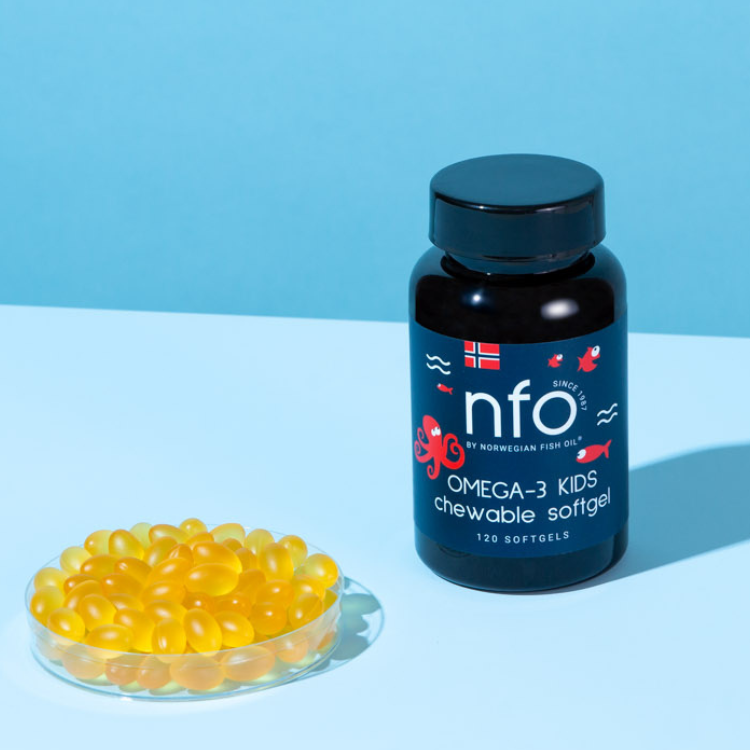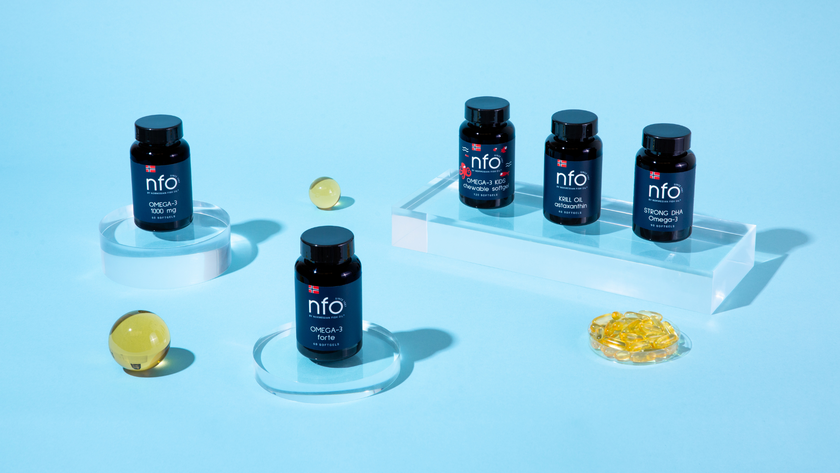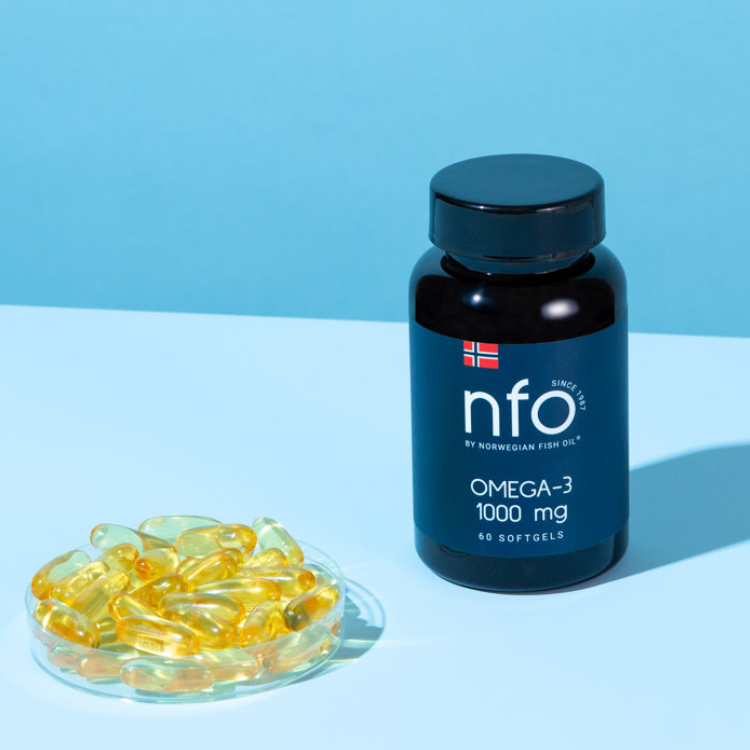Omega-3 fatty acids are widely acknowledged as vital nutrients for health, influencing everything from brain development to heart health. While adults are often encouraged to consume omega-3-rich foods or supplements, the question of whether children should also take omega-3 supplements is a matter of growing interest among parents, educators, and healthcare providers. This article explores the benefits, risks, and considerations surrounding omega-3 supplementation in children.
The Role of Omega-3 Fatty Acids in Children
Omega-3 fatty acids are polyunsaturated fats, with eicosapentaenoic acid (EPA), docosahexaenoic acid (DHA), and alpha-linolenic acid (ALA) being the most significant forms. EPA and DHA are primarily found in fish and seafood, while ALA is plant-based, found in foods like flaxseeds and walnuts (NIH, 2022). For children, these fatty acids play critical roles in brain development, cognitive function, and overall growth.
Brain Development
DHA, in particular, is a major structural component of the brain and retina. Studies have linked adequate DHA intake during childhood to improved cognitive performance and behavioral outcomes. For instance, Hibbeln et al. (2007) found that children with higher levels of DHA performed better in tests assessing learning and memory.
Behavioral and Emotional Health
Behavioral studies suggest that omega-3 fatty acids may help manage conditions like attention-deficit/hyperactivity disorder (ADHD) and depression. Bloch and Qawasmi (2011) conducted a meta-analysis indicating modest improvements in ADHD symptoms with omega-3 supplementation. Similarly, omega-3s may support emotional regulation, though more research is needed to confirm these findings.
Physical Growth
Omega-3s contribute to the development of a healthy cardiovascular system and immune function. Lauritzen et al. (2001) highlighted that omega-3s positively influence immune response in children, potentially reducing the risk of infections and inflammatory conditions.
Sources of Omega-3s for Children
Dietary Sources
The best way to ensure children get enough omega-3s is through a balanced diet. Fatty fish such as salmon, mackerel, and sardines are rich in EPA and DHA. For children who avoid fish, plant-based sources like chia seeds and fortified foods can provide ALA, though the conversion of ALA to EPA and DHA in the body is limited (NIH, 2022).
Supplements
Omega-3 supplements, often derived from fish oil, krill oil, or algae, provide a convenient alternative. Algal oil is particularly suitable for vegetarians and those with fish allergies. However, the dosage and quality of supplements vary, making it essential to consult a healthcare provider before starting supplementation.
Benefits of Omega-3 Supplementation in Kids
Cognitive and Academic Performance
Omega-3s may enhance academic performance by improving focus, memory, and processing speed. A randomized controlled trial by Richardson et al. (2012) demonstrated that children aged 7–9 who received DHA supplements showed significant improvements in reading ability compared to the placebo group.
Management of ADHD and Behavioral Issues
Several studies indicate that omega-3 supplementation may reduce symptoms of ADHD. Hawkey and Nigg (2014) reviewed evidence supporting the role of omega-3s in improving attention and reducing hyperactivity. Although the improvements are often modest, omega-3s present a safe adjunctive treatment option.
Support for Emotional Well-being
Children experiencing anxiety or mild depression may benefit from omega-3 supplementation. Sinn et al. (2008) observed improved mood and behavior in children receiving fish oil supplements, though they noted that results can vary based on the dosage and the individual child’s baseline nutritional status.
Immune Function and Inflammation
Omega-3 fatty acids possess anti-inflammatory properties that can support immune health. Studies by Calder (2006) suggest that omega-3s may help reduce the risk of chronic inflammatory diseases, including asthma and eczema, in children.
Risks and Considerations
Despite their benefits, omega-3 supplements are not without potential risks. Parents should weigh these carefully and consult professionals as needed.
Risk of Contamination
Fish-based omega-3 supplements may contain trace amounts of mercury, polychlorinated biphenyls (PCBs), or other toxins. Reputable brands often test their products for purity, but it is essential to verify quality certifications.
Overdosage and Side Effects
Excessive omega-3 intake can lead to side effects such as nausea, diarrhea, or an increased risk of bleeding due to reduced blood clotting. Omega-3 intake from supplements should generally not exceed 2,000 mg per day for children, as recommended by the NIH (2022).
Allergies and Dietary Restrictions
Children with fish or shellfish allergies should avoid fish-derived omega-3 supplements. Algal oil supplements provide a safe alternative but may be less bioavailable compared to fish oil.
How Much Omega-3 Do Kids Need?
The optimal omega-3 intake for children varies by age and individual needs. According to the NIH (2022):
- Ages 1–3: 700 mg/day of ALA
- Ages 4–8: 900 mg/day of ALA
- Ages 9–13: 1,200 mg/day for girls and 1,600 mg/day for boys
These recommendations primarily focus on ALA, emphasizing the importance of incorporating DHA and EPA through diet or supplements.
Practical Tips for Parents
Encouraging a Balanced Diet
Parents can incorporate omega-3-rich foods into meals by offering:
- Fish-based dishes like salmon patties or tuna sandwiches
- Snacks with walnuts, flaxseeds, or chia seeds
- Smoothies fortified with omega-3 supplements or enriched plant oils
Choosing the Right Supplement
When dietary intake is insufficient, parents should:
- Select high-quality supplements verified by third-party testing
- Start with low doses and adjust as recommended by a healthcare provider
- Consider algal oil for plant-based or allergen-free options
Monitoring and Evaluation
Regular consultations with a pediatrician or nutritionist can help assess a child’s omega-3 levels and overall health outcomes. Blood tests measuring omega-3 index levels may provide further insights.
Current Research and Future Directions
The scientific community continues to explore the benefits of omega-3s in children. Future research may focus on:
- Long-term effects of supplementation on academic performance and emotional health
- Synergistic effects of omega-3s with other nutrients like vitamin D
- Genetic factors influencing omega-3 metabolism and response
Conclusion
Omega-3 fatty acids are essential for children’s growth, brain development, and overall health. While a balanced diet is the best source of these nutrients, supplementation may benefit children with specific deficiencies or health conditions. Parents should carefully consider the quality, dosage, and individual needs of their children, seeking professional guidance as necessary. With proper management, omega-3 supplementation can serve as a valuable tool in promoting children’s well-being.
References
- Bloch, M. H., & Qawasmi, A. (2011). Omega-3 fatty acid supplementation for the treatment of children with attention-deficit/hyperactivity disorder symptomatology: Systematic review and meta-analysis. Journal of the American Academy of Child & Adolescent Psychiatry, 50(10), 991–1000.
- Calder, P. C. (2006). n-3 polyunsaturated fatty acids, inflammation, and inflammatory diseases. The American Journal of Clinical Nutrition, 83(6 Suppl), 1505S–1519S.
- Hawkey, E., & Nigg, J. T. (2014). Omega-3 fatty acid and ADHD: Blood level analysis and meta-analytic extension of supplementation trials. Clinical Psychology Review, 34(6), 496–505.
- Hibbeln, J. R., Davis, J. M., Steer, C., Emmett, P., Rogers, I., Williams, C., & Golding, J. (2007). Maternal seafood consumption in pregnancy and neurodevelopmental outcomes in childhood (ALSPAC study): An observational cohort study. The Lancet, 369(9561), 578–85.
- Lauritzen, L., Hansen, H. S., Jørgensen, M. H., & Michaelsen, K. F. (2001). The essentiality of long-chain n-3 fatty acids in relation to development and function of the brain and retina. Progress in Lipid Research, 40(1-2), 1–94.
- National Institutes of Health (NIH). (2022). Omega-3 fatty acids: Fact sheet for consumers. Retrieved from https://ods.od.nih.gov/factsheets/Omega3FattyAcids-Consumer/
- Richardson, A. J., & Montgomery, P. (2012). The Oxford-Durham study: A randomized, controlled trial of dietary supplementation with fatty acids in children with developmental coordination disorder. Pediatrics, 115(5), 1360–1366.
- Sinn, N., Howe, P. R., & Dowson, M. (2008). Extended supplementation with polyunsaturated fatty acids in children with attention-deficit/hyperactivity disorder: A randomized, placebo-controlled, double-blind trial. Prostaglandins, Leukotrienes and Essential Fatty Acids, 78(5-6), 347–357.









